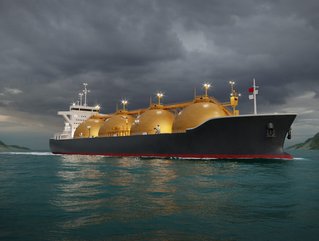Sea shipping GHG goals 'disheartening' - environmentalists

Top-level talks to tackle greenhouse gas (GHG) emissions in the maritime transport industry have been slammed by environmentalists as “disheartening” and “tepid”.
The 80th session of the Marine Environment Protection Committee (MEPC) – which opened on July 3 and ends today (July 7) – is being held at the London HQ of the International Maritime Organisation (IMO).
The talks are focused on the adoption by the IMO of an upgraded greenhouse gas strategy, and involve delegates from 175 shipping countries, who are looking to set a timeline for decarbonising their industry.
It has now emerged that the IMO has set a revised target of a 10% reduction of GHG by 2030, with the earliest measures to achieve this not being put in place until 2027.
IMO's new GHG target 'disheartening'
"It's difficult not to be disheartened by the outcome of this week's IMO talks,” says Diane Gilpin, Founder and CEO of Smart Green Shipping, a company that is unlocking wind power for the shipping industry.
“Science tells us that anything less than 36% emissions reductions by 2030 and 96% by 2040 will be detrimental to keeping global warming below 1.5 degrees.
Gilpin points out that emissions in the shipping industry have consistently risen since the first UN climate conference held back in 1979, and adds that shipping is now responsible for 3% of emissions globally.
She says: “The industry has been calling for a level playing field and clarity through regulation but it's simply not happening because there are so many conflicts of interest.
Fossil fuels drive 40% of sea shipping trade
“The fact 40% of shipping trade is fossil fuels speaks for itself. We do not have the time to wait for regulation or alternative fuels to catch up. We need to move with urgency and work with what we have. Wind is the obvious solution – it's abundant, freely available, saves costs and drives down emissions.
“The technologies already exist and it's positive to see ship operators starting to harness them to future proof their assets. Those that act now stand to reap significant financial and reputational benefits."
The IMO’s revised GHG target was also slammed by the lobby group, Say No to LNG.
LNG stands for liquefied natural gas, and it is the transition fuel of choice for marine stakeholders as the world moves towards net-zero emissions.
Say No to LNG Campaign Director Elissama Menezes said of the talks that “an alarming lack of urgency pervades the room”.
She added: “In the face of raging fires, extreme weather, and widespread health crises, the stakes could not be higher, and the time for decisive action is now.
IMO GHS targets 'fall short of what's needed'
“Yet the IMO appears detached from this urgent reality. While the world burns, their tepid response falls significantly short of what is necessary. We demand more than mere rhetoric.
“We demand bold, unwavering commitment to enact robust regulations encompassing all greenhouse gas emissions, including the potent climate pollutant, methane.”
The IMO is a specialised agency of the United Nations, and is responsible for regulating shipping. The MEPC, meanwhile, addresses environmental issues under IMO’s remit, including GHG emissions from ships.
The shipping industry has come under growing pressure to dramatically curb planet-warming emissions.
An estimated 90% of the products and goods the world consumes travel by ship, and today’s vessels frequently burn highly polluting heavy fuel-oils – also known as residual fuels – that have a high sulphur content. These contribute as much as 3% of the world's global carbon dioxide emissions , which is roughly the same volume of CO2 in a single year as Germany produces.
This could grow by as much as half again by the middle of this century if strong action isn't taken, experts warn. Despite all this, maritime shipping is the biggest global sector without a goal for cutting emissions to net zero -- until this week's IMO London talks.
- Building a Strong Global Supply Chain for Business SuccessDigital Supply Chain
- Transforming Sustainability T-Mobile's Strategic Initiatives
- T2 on Supplying Quality tea, Whatever the ChallengesSupply Chain Risk Management
- Kite Pharma: Where Innovation and Sustainability AlignDigital Supply Chain






